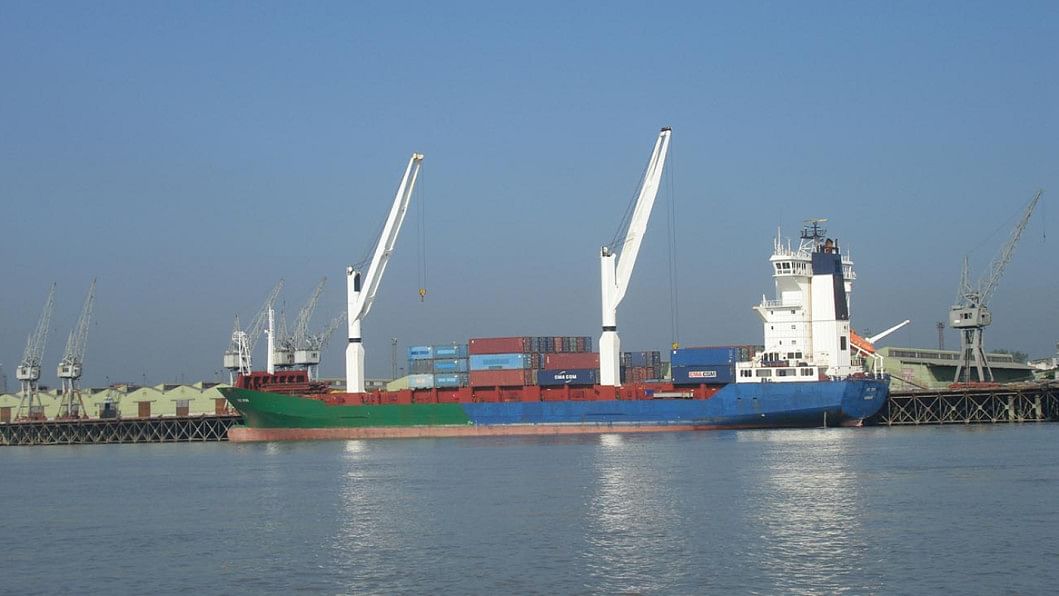Export proceeds of $7.6m stuck in Russia: BKMEA

Export proceeds amounting to around $7.6 million owed to 14 Bangladeshi exporters have been stuck in Russia for at least one year as Russian importers are facing a US dollar shortage, according to Mohammad Hatem, president of the Bangladesh Knitwear Manufacturers and Exporters Association (BKMEA).
"If the government could pay the exporters by utilising the debt repayments owed to Russia for the Rooppur Nuclear Power Plant, it would provide relief to the exporters," he said at the unveiling of his electoral manifesto yesterday.
The dues have been stuck due to severe US sanctions, which have severely restricted Russia's ability to use US dollars for global transactions, he added.
Hatem also alleged that the existing tax regime in Bangladesh remains complex and unfriendly for businesses and investors.
Speaking at the Pan Pacific Sonargaon hotel in Dhaka, Hatem said exporters, particularly in the knitwear sector, face significant challenges as the advance income tax (AIT) system lacks proper adjustment mechanisms.
Hatem also alleged that the existing tax regime in Bangladesh remains complex and unfriendly for businesses and investors
"Although the official corporate tax rate for our sector is 12 percent, in reality, the burden is much higher due to various complications," he added.
Despite the hurdles, Hatem expressed optimism about reform, stating that the newly appointed chairman of the National Board of Revenue (NBR) has shown a positive attitude towards easing regulatory obstacles.
"He is willing to listen to the problems faced by businesses. We are hopeful that changes will follow."
Hatem criticised the current state of the banking sector, calling it a key impediment to the country's export operations.
"The issues in the banking sector are severely hampering our ability to export. There needs to be a major overhaul," he said.
Hatem, who will be contesting the upcoming BKMEA elections as the presidential candidate from the Progressive Knit Alliance, pledged continued support for legitimate demands from workers.
"We stand beside the workers and will continue to support rational demands," he said.
Hatem emphasised the need for a competitive election environment, stating that his panel would have preferred a contested race over a mutual consensus. Yet, due to widespread support from members, only three candidates are running against his 35-member panel.
"The members have always appreciated our support during crises, which is why no one showed much interest in running against us," he added.
The BKMEA election for the 2025–27 term is scheduled for Saturday. A total of 582 voters are eligible to cast their ballots, including 272 from Dhaka, 224 from Narayanganj, and 76 from Chattogram.
Unveiling a 15-point manifesto, Hatem and the Progressive Knit Alliance laid out a reform-focused roadmap aimed at improving the country's knitwear business climate.
Chief among their pledges is working closely with the NBR to simplify tax laws, eliminate customs bottlenecks, and introduce transparent, accountable policies that encourage investment.
The manifesto calls for the simplification of HS codes, streamlining import-export procedures – including free-of-cost shipments – and resolving complications in the bonded and non-bonded supply chains.
The panel also pledged to push for licensing support to help non-bonded factories begin exports.
Addressing VAT issues, the alliance criticised the harassment of export-oriented businesses despite statutory exemptions and called for eliminating barriers that hinder transportation and raise costs.
In response to current liquidity challenges, the manifesto promises coordinated discussions with the Bangladesh Bank and relevant ministries to fix structural flaws in the banking sector, which exporters say is severely limiting trade.
Furthermore, the panel committed to restoring yarn imports via land ports to reduce lead times, ensuring uninterrupted gas supply to industries, and promoting high-value apparel production to strengthen Bangladesh's position in global markets.
They also proposed stricter measures – including blacklisting – against unethical buyers who cancel orders or delay payments after goods are shipped.
Additional pledges include extending support for ensuring access to finance for small and medium enterprises, contributing to policy formulation on labour and sustainability, and constructing a permanent BKMEA office in Dhaka.

 For all latest news, follow The Daily Star's Google News channel.
For all latest news, follow The Daily Star's Google News channel. 





Comments